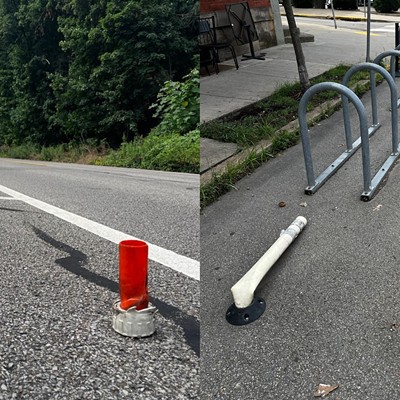Luciana Randall, of the Autism Connection of PA, estimates that nearly 10 percent of the calls for help she receives are related to people with autism getting tangled up in the criminal-justice system. So when the state recently published data that shows people with autism are getting caught in the justice system more frequently, she wasn't surprised.
"People with autism interact with the criminal-justice system quite often because of their symptoms," says Randall, executive director of Autism Connection.
She recalls a case where an autistic person thought he was just pursuing a romantic interest, but followed a girl to work and watched her for six hours without realizing how the behavior would be interpreted. "It looks like stalking," Randall says. "Their behavior can really be misconstrued and officers can't always tell the person has autism, so things can snowball really quickly."
According to figures released Nov. 13, the statewide rate of juvenile justice-system contact among those with autism increased from 659 contacts per 10,000 people in 2005, to 1,423 in 2011.
Those numbers came as an update to the Pennsylvania Autism Census Project, and it was the first time the state had ever published data on the interactions people with autism are having with the criminal-justice system, according to Lindsay Shea, the report's author.
"The topic has been growing as an issue and we really wanted to get a first look at it," says Shea, director of the eastern region of the ASERT Collaborative — a state-funded initiative to ensure that services for people with autism are more readily available.
But the numbers included in the census are limited to people who receive support through Medicaid, a data set that could be cross-referenced with criminal-justice data. The report estimates there are 130,000 Pennsylvanians who are autistic but aren't receiving state services and wouldn't be included in the census, meaning their interactions with law enforcement wouldn't be counted.
And since the jails themselves often aren't consistently tracking people with autism, it's nearly impossible to get a full sense of the proportion of people with autism who encounter the criminal-justice system.
"Initially, what we're finding is policies can vary around how the systems do an intake," Shea says. "In some places, there could be an excellent and thorough focus on trying to detect a diagnosis like autism. In some other systems, that might not be the top priority."
Still, Shea and her colleagues at the ASERT Collaborative are planning a deeper dive into the criminal-justice numbers to look at what kinds of charges are being filed against people with autism and where they are geographically.
One early trend she's noticing, for instance, is what she deems to be a spike in law-enforcement contacts as people with autism enter their teens. Being able to unpack these trends could allow Shea and others to promote training efforts for those in the criminal-justice system that "could be primed to maximize impact."
And according to a survey Shea conducted that included judges, district attorneys, Children, Youth and Families workers, probation officers, correctional facility staff and lawyers, 75 percent said they had not received autism training, while 80 percent reported training needs.
Allegheny County Common Pleas Judge John Zottola, for one, says judges may not always recognize autism and might hold odd behaviors against defendants. If a person with autism doesn't express remorse, repeats what a judge says or doesn't make eye contact — that could be misinterpreted.
"In some instances, it may cause [judges] to have displeasure or become angry because they're showing signs of disrespect. It's human nature," says Zottola, who is also the chair of the Mental Health and Justice Advisory Committee, part of the state Commission on Crime and Delinquency. He says one potential solution could be creating a problem-solving court specific to autism where you're "diverting someone from the criminal-justice system and directing them toward treatment."
But Zottola says that's just one possible option — and it would depend on whether numbers from people like Shea demonstrate a real need for it.
For the time being, the Autism Connection's Randall hopes increased focus on the issue "spurs legislators to measure the cost in lives and taxpayer money of incarcerating people with autism, when they could be better served in community-based rehabilitative settings."
When it comes to social errors, Randall says, for "the vast majority [...] there's no excuse to have autistic people in jail."














